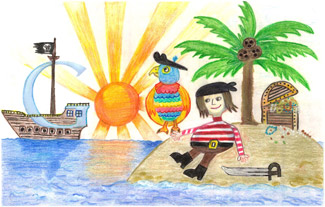Excerpts from my latest article at Practical eCommerce: “Google Shopping’s Impact on SEO.”
Over the next several months, Google’s free Product Search feature will start costing ecommerce sites a lot more. Since the launch of Google’s Froogle in 2002, Google has provided a free product search service. The newly launched Google Shopping marks the first time that the company has converted a free service to a pay-for-placement model. Search marketers wonder, what does this mean to organic search?
For those who focus purely on search engine optimization, the change may actually be a positive. Some of the placement tests for Google Shopping results actually improve the organic results’ position on the page compared with other paid modules. For example, a search for “teddy bears” before the move to Google Shopping would have resulted in the result at left below. The shopping results are beneath the paid results, pushing the organic search results lower on the page. We can only see one full organic result in this image, and the top of the second.
Today’s shopping results are still in flux as Google tests the best placement for these new ads, but many of the placement experiments are appearing in the upper right. In the example above and to the right, the shopping results appear as an anchor point for the paid search ads, to the right of the top block and above the right block. As a result, Google is able to squeeze two more organic results into the same space that the previous shopping module had taken up.
The experiments are still running, however, with the full launch set for sometime this fall. Until then, Google will likely continue to test and revise placement of the shopping modules to find the balance it needs to strike between revenue and searcher satisfaction….
Read the article in full at Practical eCommerce »

Originally posted on Web PieRat.


 I may live in Illinois as a Flatlander at present (and have previously for several brief periods of early childhood) but I spent most of my life between Colorado, California and Wisconsin. That, plus the fact that the Web Pierat loves all things searchtastic and piratical makes my especially fond of the doodle that second grader Dylan Hoffman of Caledonia, WI, created to win this year’s U.S. Doodle 4 Google National Contest. His doodle “Pirate Times” is featured on the U.S. Google homepage today. For his artistic efforts he’ll receive a $30,000 college scholarship, a Chromebook computer and a $50,000 technology grant for his school. Congrats, Dylan, and keep towing that pirate line. Those ninjas are sneaky buggers 😉
I may live in Illinois as a Flatlander at present (and have previously for several brief periods of early childhood) but I spent most of my life between Colorado, California and Wisconsin. That, plus the fact that the Web Pierat loves all things searchtastic and piratical makes my especially fond of the doodle that second grader Dylan Hoffman of Caledonia, WI, created to win this year’s U.S. Doodle 4 Google National Contest. His doodle “Pirate Times” is featured on the U.S. Google homepage today. For his artistic efforts he’ll receive a $30,000 college scholarship, a Chromebook computer and a $50,000 technology grant for his school. Congrats, Dylan, and keep towing that pirate line. Those ninjas are sneaky buggers 😉